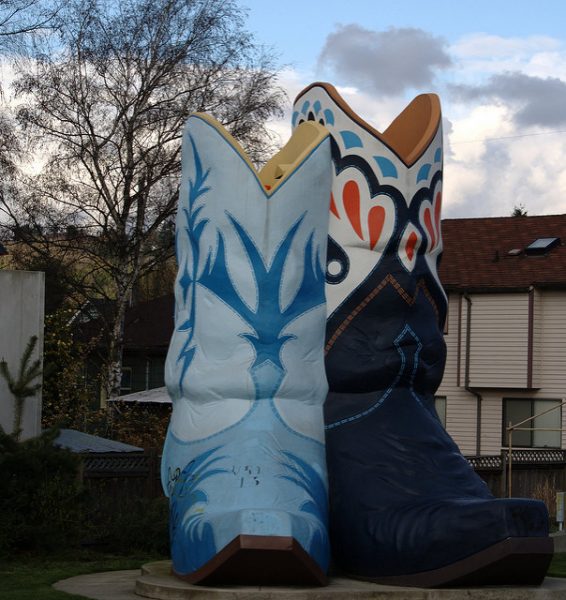
From PRIDE parades to drag brunch, we tend associate queer people and queer-friendly places with cities. While some LGBTQ individuals do migrate to the metros, many also reside in rural America. Social scientists illustrate how queerness in the country functions differently than in the hustle and bustle of the city.
Distinguishing urban and rural is one way that LGBTQ people construct their identities in the context of small towns. Some feel that the popular images of gay individuals in urban spaces partying and enjoying nightlife are extreme and run contradictory to the experiences of queer folk who live quieter lives. Others feel that city gay bars are more impersonal than local small-town dive bars. Like in the show Cheers where “everyone knows your name,” a person’s character and long-term local status seems to matter more than their sexual orientation. In addition, some gay and lesbian individuals choose to return to their rural roots after trying out city life and rationalize this choice by deciding not to conform to cultural, urban-based understandings of what being gay means.
- Emily Kazyak. 2011. “Disrupting Cultural Selves: Constructing Gay and Lesbian Identities in Rural Locales.” Qualitative Sociology 34(4): 561-581.
Queer visibility also differs in rural versus urban areas. Finding other LGBTQ people in rural areas generally takes more legwork. While cities tend to have specific locations where queer communities congregate, rural communities have fewer designated queer enclaves. This means that meet ups for queer people in rural places involve circulating information and using space temporarily. One consequence of limited space is that many LGBTQ people have more trouble accessing social support, which may lead to worse health outcomes.
- Mary L. Gray. 2009. Out in the Country: Youth, Media, and Queer Visibility in Rural America. New York: NYU Press.
- Mary L. Gray, Brian J. Gilley, and Colin R. Johnson, eds. 2016. Queering the Countryside: New Frontiers in Rural Queer Studies. New York: NYU Press.
Residents in rural areas tend to have poorer health outcomes compared to those in cities overall, but the disparities are stronger for LGBTQ people. Not only do many queer folks face discrimination and stigma in healthcare facilities, rural healthcare is less likely to be equipped with the resources to meet the specific needs of gay, lesbian, queer, and non-binary patients.
- Brandi Woodell. 2018. “Understanding Sexual Minority Health Disparities in Rural Areas.” Sociology Compass 12(2): 1-17.
- Christopher M. Fisher, Jay A. Irwin, and Jason D. Coleman. 2014. “LGBT Health in the Midlands: A Rural/Urban Comparison of Basic Health Indicators.” Journal of Homosexuality 61: 1062-1090.
- James M. Dahlhammer, Adena M. Galinsky, Sarah S. Joestl, and Brian W. Ward. 2016. “Barriers to Healthcare Among Adults Identifying as Sexual Minorities: A U.S. National Study.” American Journal of Public Health 106(6): 1116-1122.

Comments 1
The Dark Avenger — June 25, 2018
Here in Tulare County, CA, we have the highest % of gay parents in the state. Mind you, this is because lots of kids growing up here get married and have kids because that’d make their parents happy. Then, they come out later on.